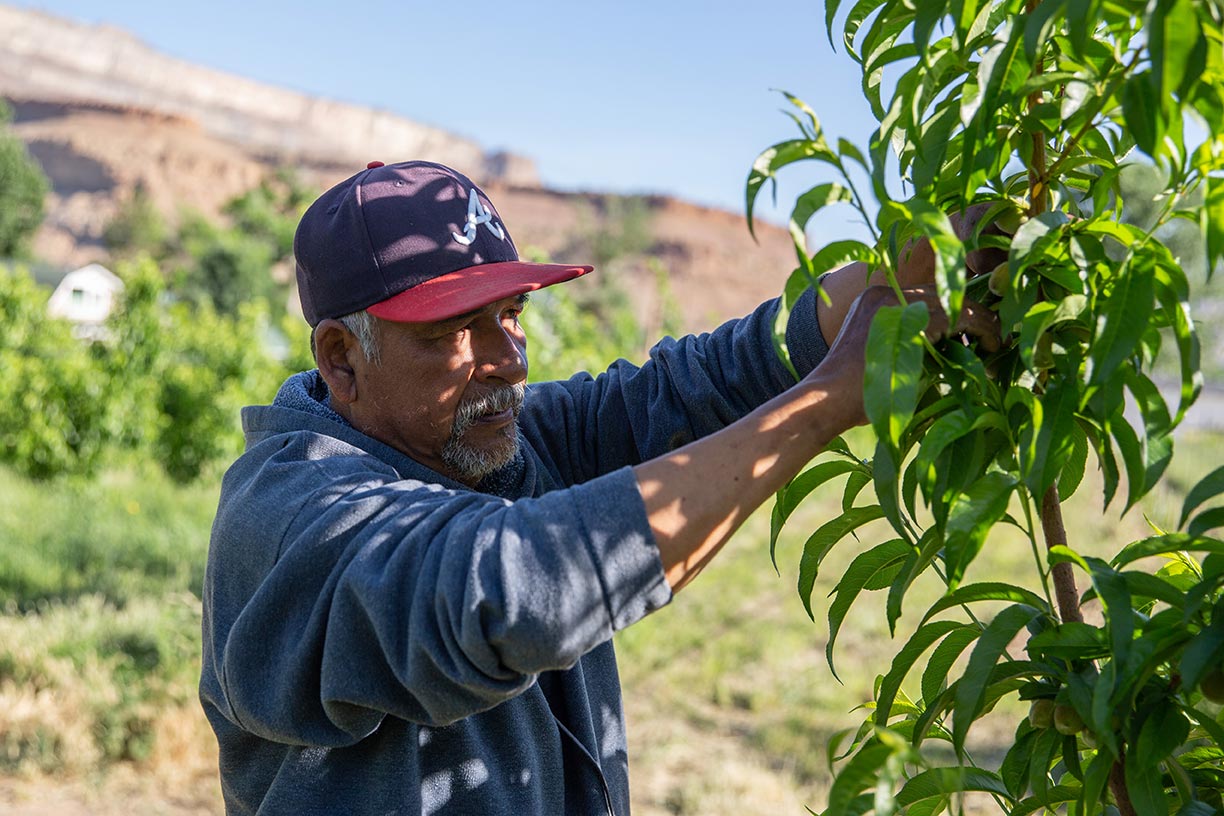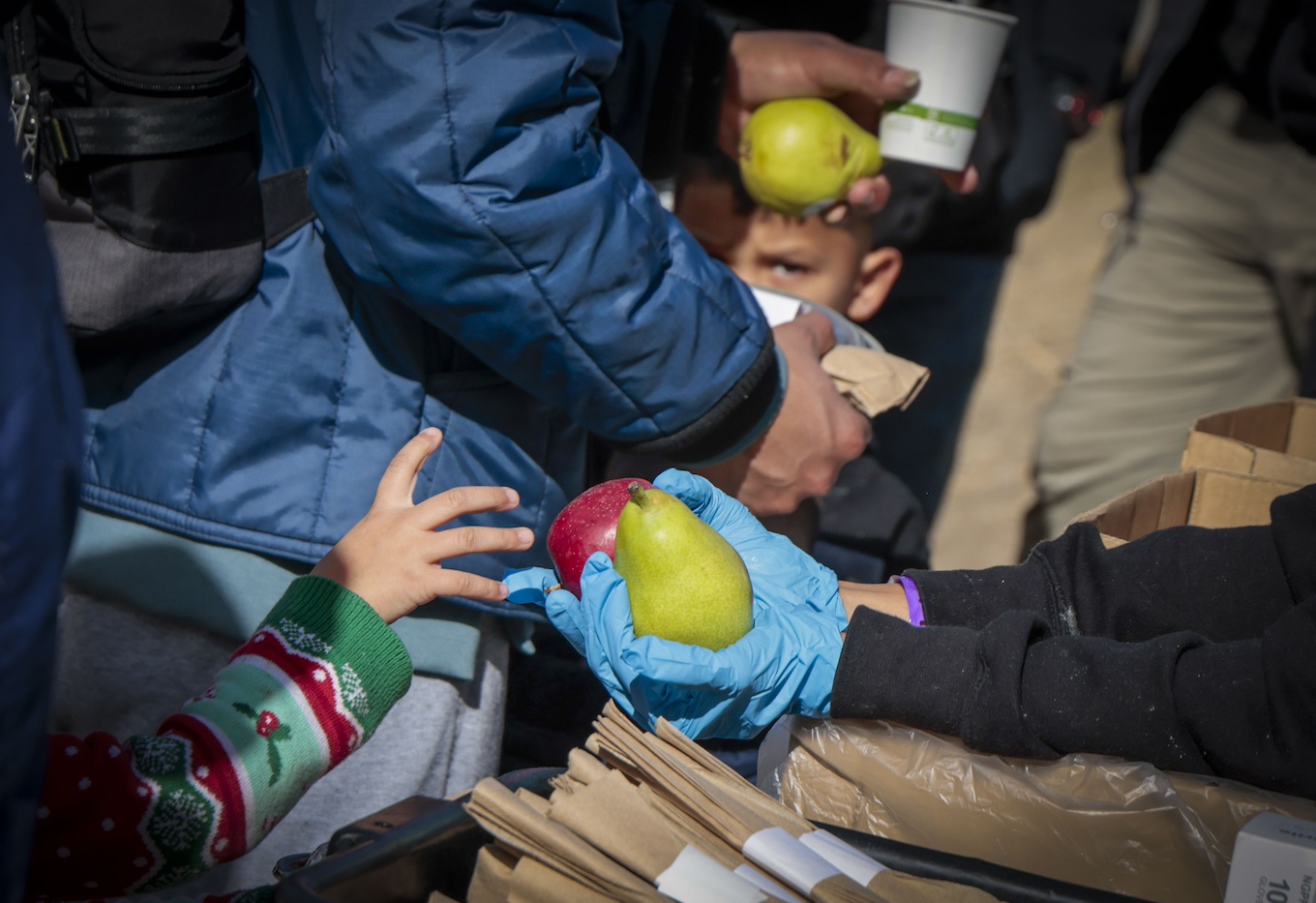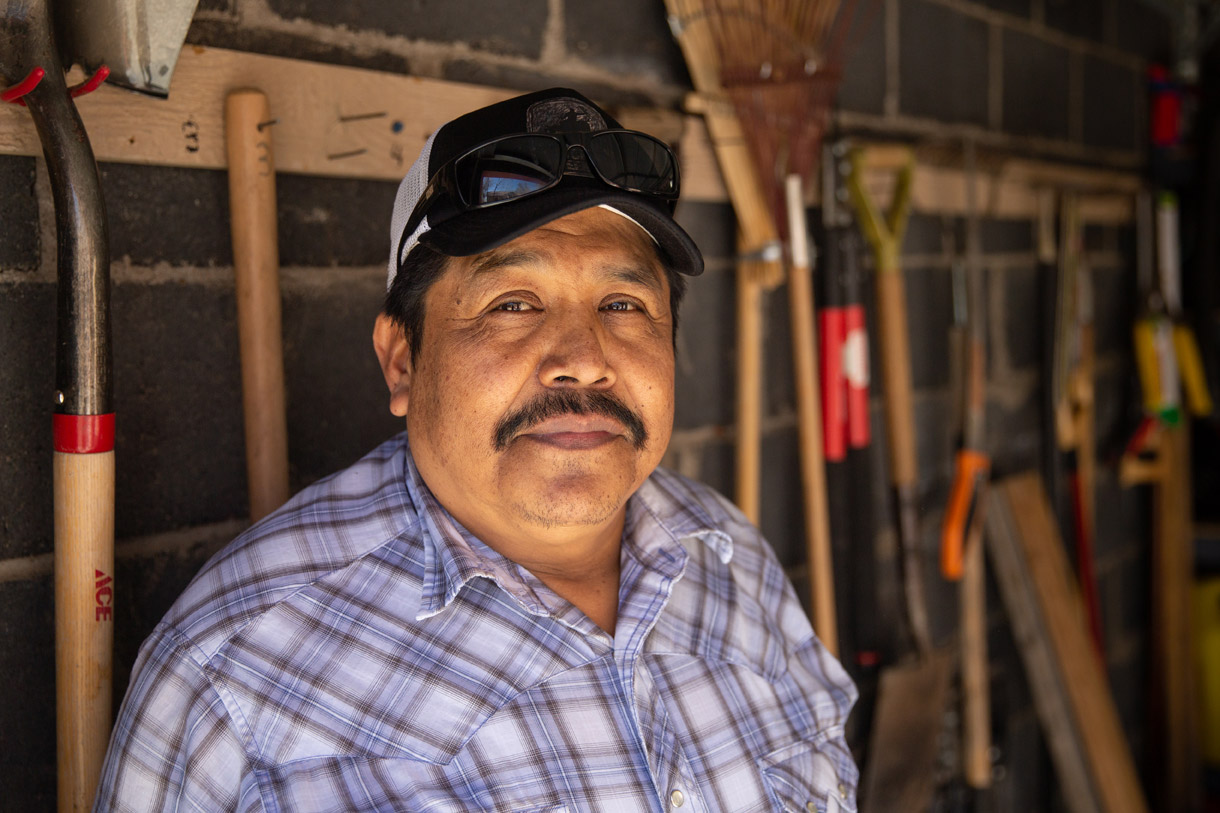The steady sound of shovels stabbing into the soil of a Palisade, Colo. orchard signals where half a dozen workers—all of them Mexican, here on work visas—are replacing peach trees killed by a late freeze three years ago. The workers grab knee-high baby trees that are swaddled in yellow plastic. They plunk them into the damp soil, settling them in with pats of their shovels.
Some of these workers were in these same orchards near the foothills of the Grand Mesa on Colorado’s Western Slope when plunging temperatures shriveled and blackened the trees. They were saddened they had to chop down brittle trees they had been caring for through previous seasons of planting, pruning, thinning and picking. They say they hope to be here to see these replacement trees begin producing fruit in several years.
These workers feel invested in the prosperity of 40-acre Rancho Durazno. They do tough work that few locals are willing to tackle. According to interviews with multiple migrant workers, as well as the director of a Palisade-based migrant service group, Rancho Durazno workers are rewarded with decent working conditions, housing and pay. Mutual respect thrives here along with fruit.
That is why they return on work visas year after year to tend the trees and augment their diminishing winter-season fishing earnings in Paredoncito, the tiny Sonoran coast village most of them call home.
“Está muy bien,” said 52-year-old Adolfo Yebismea Jupa, who started working at Rancho Durazno 14 years ago. Through an interpreter, he added: “We have everything we could want here.”
“They treat us well. They show us respect,” said Yebismea Jupa’s son-in-law Luis Angel Guzman Mancillas, who also spoke through an interpreter. (No Rancho Durazno owners or supervisors were present during these interviews.)
Beginning this season, these workers at Rancho Durazno are joining a broader effort to improve farmworker protections in Colorado so more migrant farm and ranch workers can be treated with the same respect.
Through a unanimous vote taken at a gathering in a packing shed last summer, the Rancho Durazno workers gave their owners the go-ahead to join the Fair Food Program, an innovative human-rights movement that began a dozen years ago in Florida’s vast tomato fields. Rancho Durazno’s worker approval led to Rancho Durazno becoming the first agricultural enterprise in Colorado to join the movement.
“This program is brand-new in this part of the country. Until recently, not a lot of us knew about it,” said Gwen Cameron, who co-owns Rancho Durazno with her father, Tom. She brought the program to her workers’ attention and invited organizers from Florida to come and speak to them about how the Fair Food Program is structured and how it would affect their day-to-day operations and work.
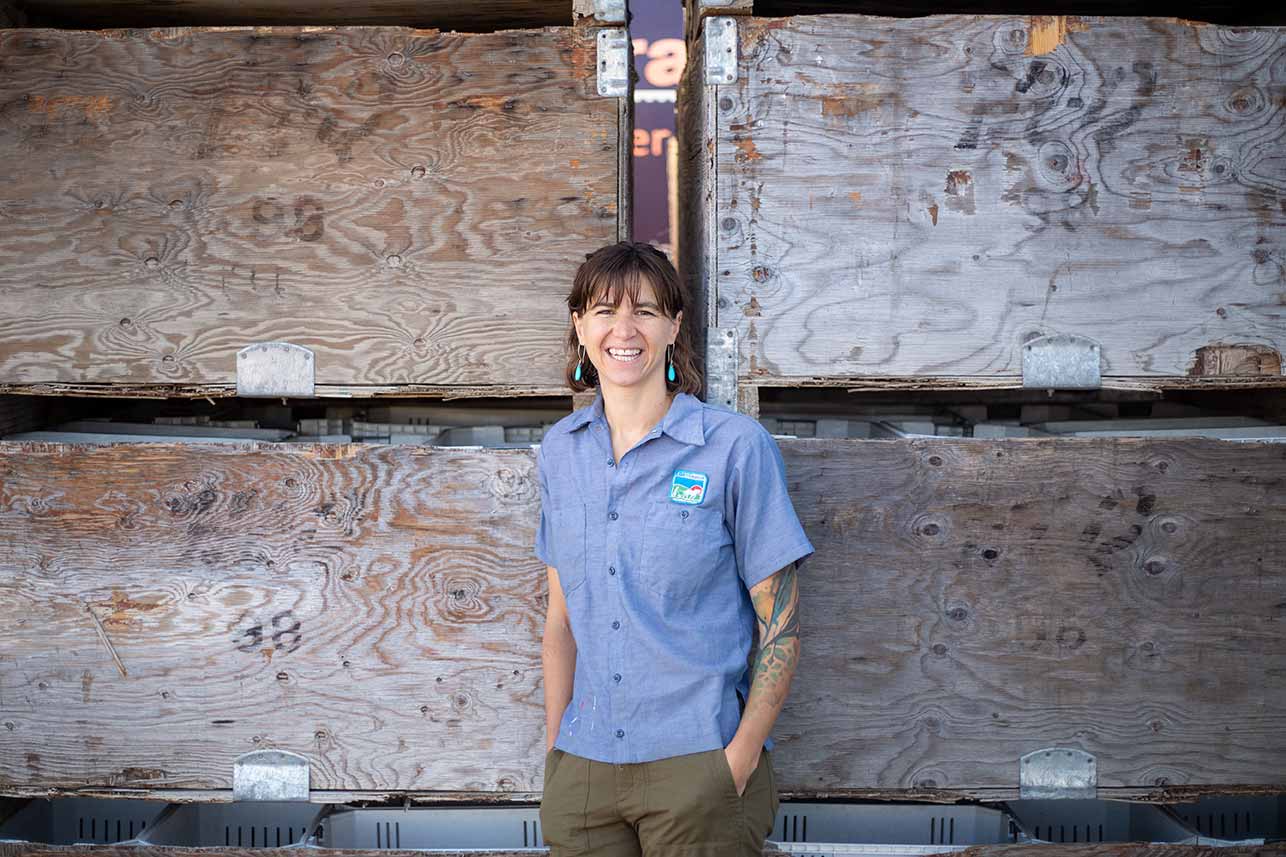
Gwen Cameron, co-owner of Rancho Durazno. Cameron originally brought the Fair Food Program to her employees’ attention.
At Rancho Durazno, there won’t be much change. Based on several interviews, the mid-sized organic orchard seems to already have a reputation among both workers and other growers in the area for treating workers well. But Rancho Durazno’s addition to the Fair Food Program’s growing list of participants nationwide will let other Colorado growers know the door is opening to more human-rights protections beyond those included in a 2021 state law that was designed to rectify some of the abuses that have dogged migrant agricultural jobs for decades.
Unlike the requirements that are imposed with that Agricultural Workers’ Rights law, the Fair Food Program protections are worker-driven and voluntary—and once a grower or buyer joins, they have to follow the program rules. “It is cooperative rather than confrontational,” is how Alamosa-based agronomist and soil consultant Patrick O’Neill differentiates the initiative.
O’Neill said that doesn’t mean it is based on squishy concepts. There are a series of strict steps that must be followed before admission to the program. The Fair Food Program requires a legally binding commitment from growers and the food companies that buy from them. There are verifiable means to ensure that workers are treated well.
O’Neill said he began vetting farmworker programs around the country for some of the Colorado growers he consults for and, after six months of research and a fact-finding trip to Florida, he determined the Fair Food Program “stood head and shoulders above the rest.”
Dan Waldvogle, director of the Rocky Mountain Farmers Union, agrees.
“This is a program with a lot of integrity,” said Waldvogle. He doesn’t plan yet to “100 percent endorse the Fair Food Program” for members, as he is waiting to see if and how program rules can be modified to fit Colorado orchards and fields. However, Waldvogle does plan to include the Fair Food Program concepts as part of his organization’s recommendations for the crafting of the next national farm bill.
Waldvogel said he views the Fair Food Program, other workers’ rights efforts and the 2021 legislation as “a wake-up call for our organization.”
The Fair Food Program is, at heart, a push for human rights for workers who have too often been undervalued in the food commodity chain. The program is considered innovative because it establishes a legal partnership between farmworkers, growers and food-company buyers that is aimed—through a series of checks, balances and rewards—at eradicating forced labor and poor treatment of workers.
It gives growers a marketing advantage with buyers who agree to the program’s principles. It is also designed to bring consumers into the equation, allowing them to choose products that are proven to come from growers who treat their workers well.
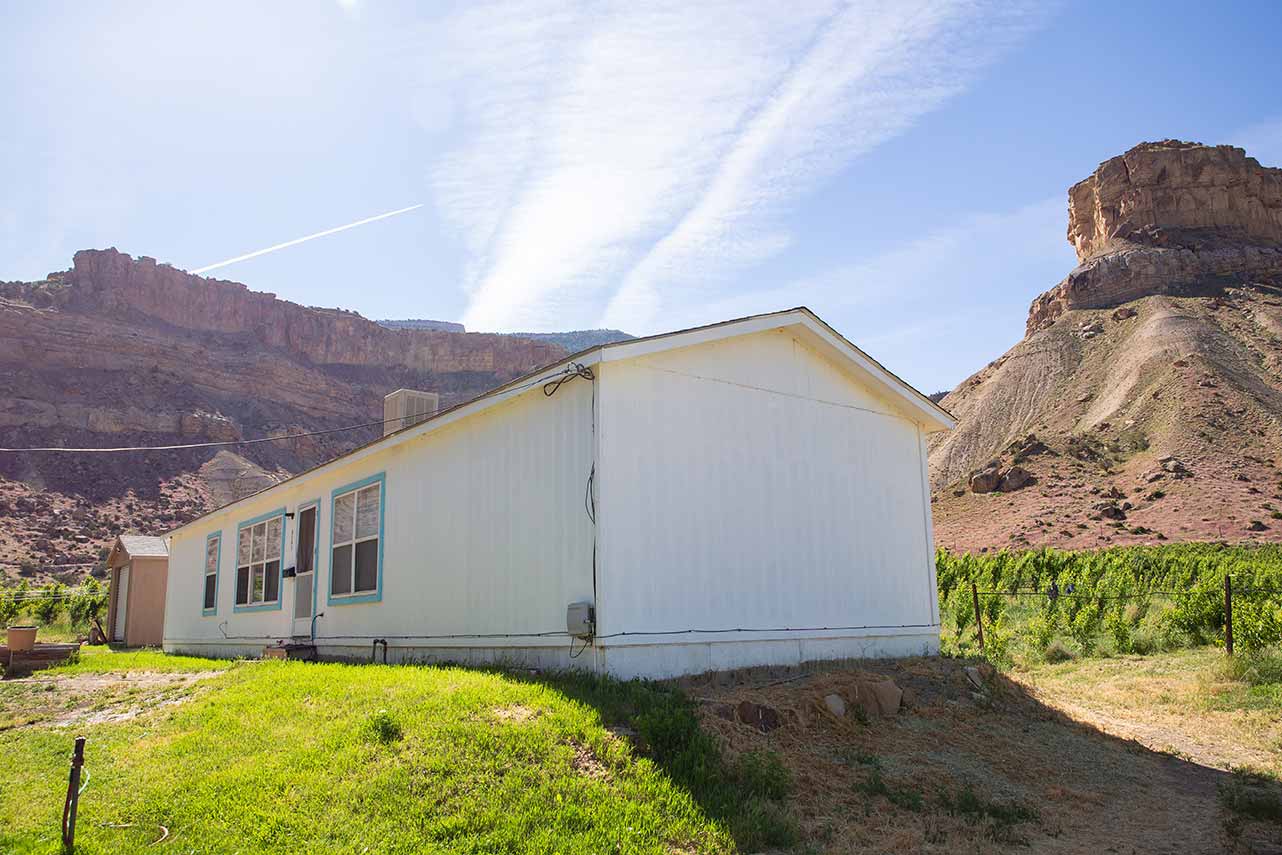
Some of the employee housing at Rancho Durazno.
The program began with the Florida-based Coalition of Immokalee Workers, tomato-field workers that gathered in a church in 1993 to discuss what to do about years of declining wages. The group’s growing membership would go on to use work stoppages, a hunger strike and a 234-mile march from Ft. Myers to Orlando to bring attention to its cause. Eventually, the program would include more than 90% of Florida’s 30,000 mostly migrant tomato-field workers.
Once wages rose, the group, in 2000, turned its attention to involuntary servitude of workers, sparking investigations that found some farmworkers were being trafficked like modern-day slaves. Investigations led to more than 1,200 workers being liberated after being forced to work against their will, some for decades.
The coalition went on to earn widespread headlines when it went after Taco Bell, a major buyer of Florida tomatoes. After a four-year battle, Taco Bell agreed to meet the coalition’s demands for improving wages and working conditions for the field workers behind the diced tomatoes that appear in its products.
The coalition’s early work morphed into the Fair Food Program in 2011 and enlisted 14 multibillion-dollar food retailers, including Walmart, McDonald’s, Subway, Sodexo, Trader Joe’s and Whole Foods to agree to the Fair Foods Program Code of Conduct. The companies agreed to buy certain categories of produce, such as tomatoes and lettuce, from growers that have agreed to Fair Foods rules.
The code of conduct is a five-part list of employment practices that covers details from timekeeping and shade breaks to medical care and reduced exposure to hazardous chemicals. It also spells out a list of violations such as sexual harassment, threats of violence, and failure to pay all wages earned. The consequences for those violations range from requiring quick remedies to suspension from the program. The latter comes with the hammer of bad publicity.
To enforce and monitor those rules, the coalition set up a Fair Foods Standards Council, a third party that conducts regular audits and investigates complaints of violations. Workers can submit complaints via a 24-hour anonymous hotline.
The Fair Food premium is a final piece of the program. It is a small, often per-pound payment from buyers to growers that is passed on to workers as a line-item bonus in their regular paychecks. Since the program was formed, the premium has meant $38 million more in workers’ pockets.
The Fair Food Program has paid off in other ways. One is in worker clout that has come with widespread kudos for the program.
Writing in the Harvard Business Review, The Bridgespan Group named the program among 15 “breakthrough initiatives” in the social sector. Eight law schools formed a consortium with Harvard that recommended Fair Food Program practices be included in this year’s national farm bill. The program has received numerous recognitions, including the Presidential Medal for “extraordinary efforts to combat human trafficking,” the Natural Resources Defense Council’s Growing Green award, and a program founder receiving a MacArthur Fellowship (a.k.a. the “Genius Grant”).
Julie Taylor with the National Farm Worker Ministry said the kudos are due to the fact the Fair Food Program has established an excellent track record when it comes to listening to workers about their needs.
“Asking 80 percent of the workers how it is going, rather than asking 10 percent, makes a big difference,” she said. “Grievances are investigated quickly and acted on quickly.”
While new to the state, the Fair Food Program is already winning the respect of other migrant worker assistance groups in Colorado.
“This seems to offer a good benefit for the workers,” said Ricardo Perez, executive director of the Hispanic Affairs Project (a Colorado Trust grantee), which has been tracking Western Slope agricultural worker complaints for years.
Perez said he has seen worker abuses lessening in general across the region, but “problems are still happening every day and we don’t have the capacity to track all the problems.”
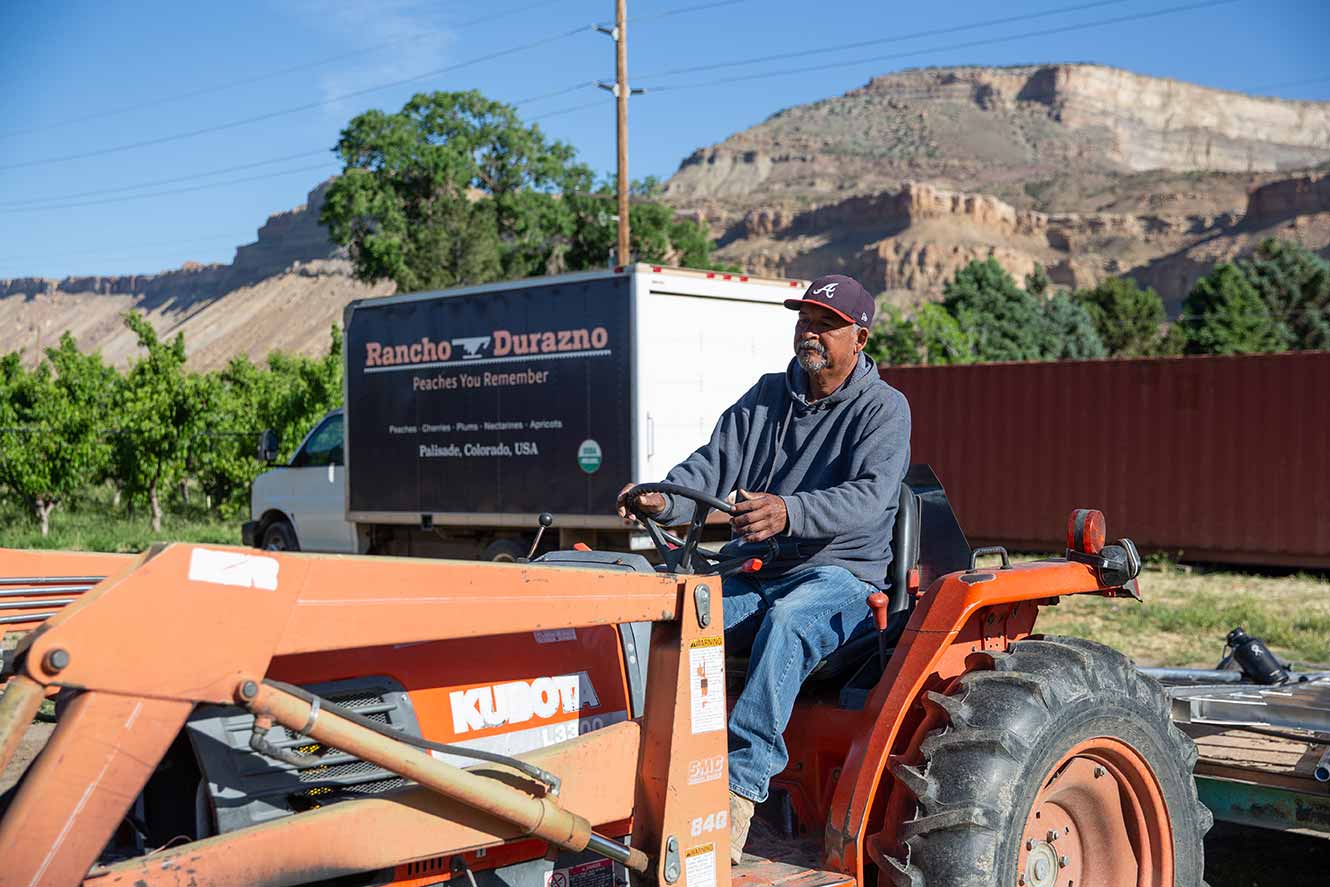
Adolfo Yebismea Jupa has worked at Rancho Durazno for 14 years. Said the owner of another farm nearby: “If we don’t treat our workers right, they will leave.”
“I think our programs complement each other,” said Hunter Knapp, development director for Project Protect, a group formed in 2020 to suss out and address farm and ranch worker abuse. He said the Fair Food Program has the benefit of being more consumer-oriented, while Project Protect works more behind-the-scenes delivering health care and food to workers and delving into complaints with the help of a small band of promotores who travel to Colorado farms and ranches.
Tom Acker, president of the community organization Western Slope Against Trafficking, said he believes the Fair Food Program does the best job of linking consumers and workers. “It makes them more aware of each other,” he said.
The Fair Food Program has spread to 12 states, with Colorado being the latest addition, as well as three other countries. Coalition of Immokalee Workers representatives came to Colorado last year to introduce the program to workers at Rancho Durazno and the Tuxedo Corn Company near Olathe. The meetings were limited to workers and coalition representatives—bosses weren’t allowed, a move that let workers know it really was their choice.
Tuxedo, which distributes Olathe’s well-known sweet corn, is still waiting to be the second Colorado operation to join the movement. It is not officially on the roster of Fair Food Program-certified participants yet because of a labor complication.
Tuxedo co-owner David Harold says workers at Tuxedo split their time with other growers in the Uncompahgre Valley, a cooperative business model based on the weather-driven, always-changing needs for field crop labor and the fact that multiple growers market corn through Tuxedo. That does not fit the Fair Food Program’s tight rules for growers; the possibility exists that a grower unbound by the Fair Food Program rules might not treat the workers as well as the Tuxedo operation.
Leonel Perez, a spokesman for the Coalition of Immokalee Workers, said his group hopes to help Tuxedo gain entry into the fold in the near future.
“We would love to see the program expand to additional farms in the region. We are in conversation with other local farms,” he added.
Harold said he believes he already treats his workers fairly and with respect. But he had to take some extra steps to comply with Fair Food Program guidelines, including changing his timekeeping and bookkeeping systems and building required shade shelters, the latter of which is a work in progress. Harold says his housing is already up to standards, and as soon as “the fiddly technicalities” of the shared workers situation is ironed out, he said he is ready to join.
Harold, who had criticized parts of the Colorado Agricultural Workers’ Rights legislation as being too punitive and bent on pitting justice advocates against farmers, said he is all for the Fair Food Program because it uses cooperation for better treatment for workers.
“We need to treat our workers better and it’s high time we did so,” Harold said. “This program helps us to cultivate a culture on the farm where we can have a meaningful conversation.”
Selso Roque, a Mexican worker who has been at Tuxedo Corn for 25 years, said that is already happening.
“If we don’t agree with something, we talk it out and we get it fixed,” said Roque on a day when he was servicing a reaper because wet and cool weather had backed up field work.
The workers at Rancho Durazno say they also feel like they are able to speak up and to give input, which Gwen Cameron appreciates. After all, some of the workers have been at it since she was a toddler traipsing through the orchards with her parents.
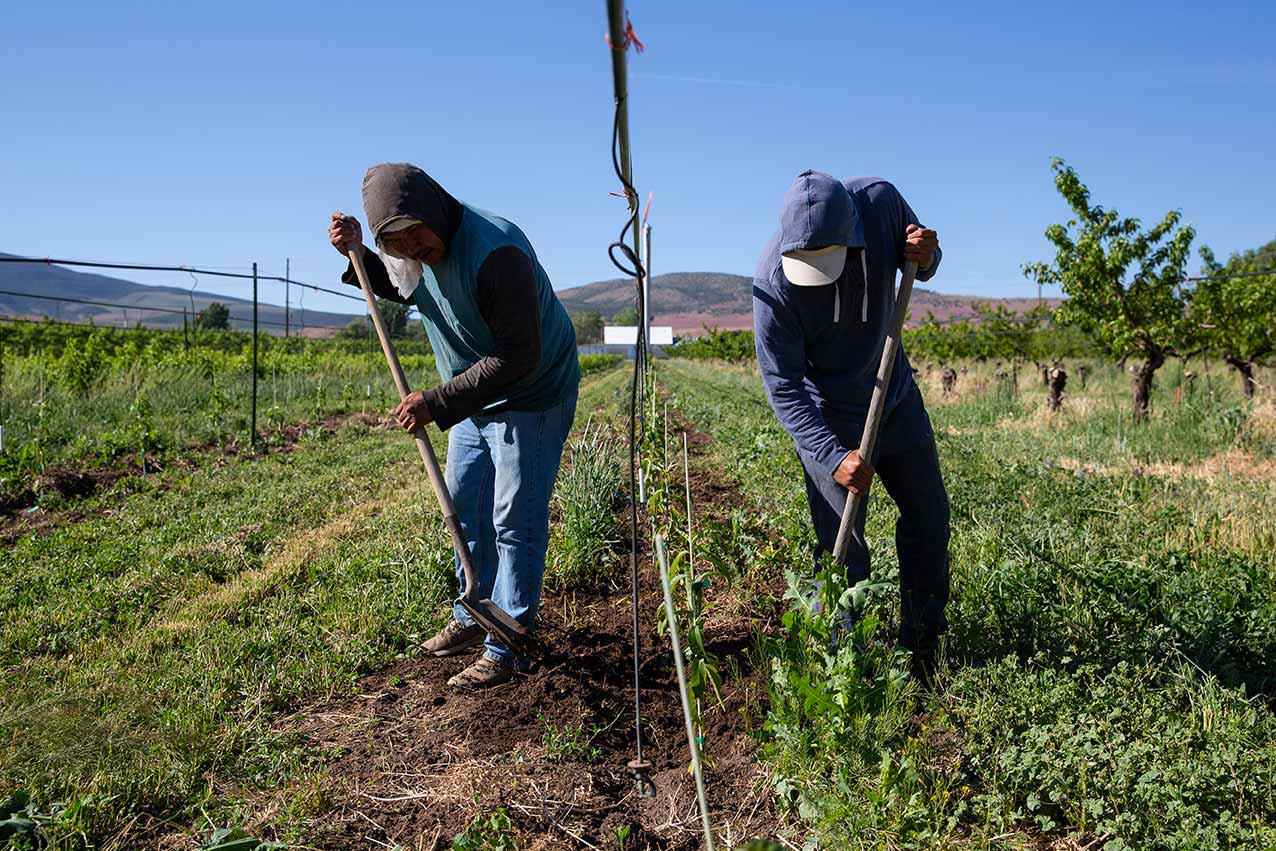
Luis Enrique Yebismea Jupa and Jonathan Navidad Yevismea (l. to r.) work one of the fields at Rancho Durazno. Many of the migrant workers at the farm are there seasonally on work visas, and spend winter months in a Mexican fishing village.
Since the Fair Food Program gave her new ideas for engaging with her workers, she said she has been having monthly one-on-one conversations with each of her workers to ask how things are going. She notes their responses for Fair Food Program audits.
Jonathan Navidad Yevismea, a 22-year-old nephew of Adolfo Yebismea Jupa (the names are translated from the Mayo language to Spanish, which can cause slight variations in spelling from one person to another, despite being the same family name), said he appreciates that level of human connection and feels in his third year of working at Rancho Durazno that he is contributing to something bigger than just one farm. He said he had previously worked on dairy farms in Minnesota where he saw worker abuses. “Some workers were treated like slaves,” he said.
Up the road from Rancho Durazno, the owners of Talbott Farms, the largest employer of farmworkers in the Palisade area, are watching how the Fair Food Program works for their neighbor.
Owners Bruce and Charlie Talbott said, like Rancho Durazno and Tuxedo, they don’t feel like they have issues with their workers. Bruce Talbott noted that there is a reason beyond morality that makes his company want to treat the workers well.
“The whole nation is in a labor shortage,” he said. “If we don’t treat our workers right, they will leave.”
Charlie Talbott said he doesn’t like the idea of adding more complexity to his family’s sprawling operation. The Fair Food Program would add another layer of monitoring and paperwork to the myriads of regulations the farm already has to follow with the federal agricultural worker visa program and food safety rules.
“We feel at some point if the benefit of [joining the Fair Food Program] outweighs the steps and the costs, we would be amenable to it,” he said. “We are kind of in a wait-and-see mode.”
Meanwhile, Rancho Durazno is all in.
“It’s a good way to communicate our values to our customers,” Gwen Cameron said. “I think the general public has become more aware of and interested in the treatment of ag workers and the Fair Food Program made me realize we need to do a better job of sharing our story.”
Her workers are proud to tell that story as they recently waited for visits with health clinic workers who Cameron brings to the farm for their benefit.
Yebismea Jupa said he has been able to send two daughters to college. Both are now school teachers in Mexico.
Mancillas said he has brought his 10-year-old son to Rancho Durazno in hopes he might want to work there someday—“but only if he wants,” he stresses.
Navidad Yevismea said he recommends the Fair Food Program to other workers in the orchard and vineyard network around Palisade.
“Honestly, I recommend this program because there are workers who don’t get treated as good as here,” he said. “Here, I am getting everything that is promised.”
